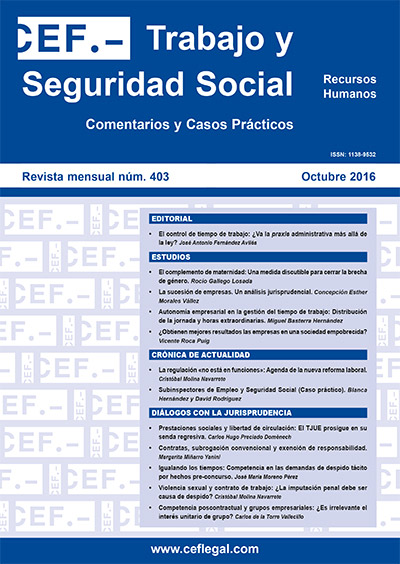Labor regulations «is not provisional» in spain: legals innovations «for after the summer holidays» that demand a new labor reform
DOI:
https://doi.org/10.51302/rtss.2016.2190Keywords:
temporary work contracts, entrepreneurship, metal collective agreement, Court of Justice of the European UnionAbstract
In Spain continue notable imbalances in the labor market. These dysfunctions are caused poor regulation. The extreme uncertainty surrounding the establishment of a National Government causes a paralysis in this new process of legal reform. Despite this political and legislative inaction, Spain lives an intense regulatory activism in labor relations. In the summer holiday period, there have been numerous legal developments in the regulation of labor relations. These changes are due to the commitments made with the European Union and the pressure that the European authorities are exerting to promote more balanced development of our labor market. This pressure comes from the European Commission –the economic and political government of the European Union–; but also it is caused a strong interventionism Court of Justice of the European Union. In this sense, the question of compensation for the termination of temporary contracts has particular significance. The ECJ has laid a doctrine, certainly very meager and ambiguous, which is causing a great social and legal turmoil. Also the Spanish Supreme Court has joined fulfill a «legislative activity» in labor relations. Therefore, it seems imperative that the new Government and the new Parliament, when they are really active, take on a new labor.


















